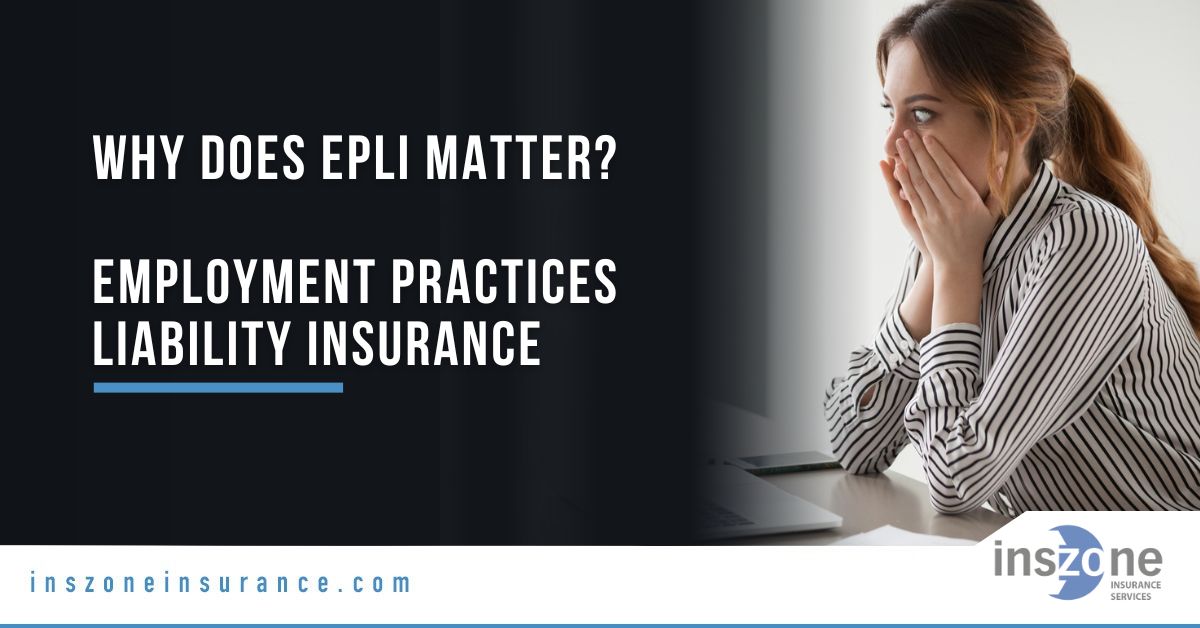Employment Practices Liability Insurance (EPLI) remains one of the most important forms of coverage for businesses of all sizes in 2025. It protects against employment-related lawsuits—such as discrimination, wrongful termination, harassment, and other claims—that can arise during the normal course of running a company. With the rise of hybrid work arrangements, evolving state-level regulations, and an increasingly empowered workforce, EPLI coverage has become more critical than ever.
Who Faces the Highest Risk of Employment-Related Claims?
- Small Businesses: They often have limited resources to maintain full-fledged HR departments and legal counsel. A single lawsuit can exceed six figures in legal costs, posing a significant threat to their financial stability.
- Mid-Size and Large Employers: As companies expand, so does their exposure. More employees, locations, and complex internal processes increase the likelihood of workplace conflicts or misunderstandings that can lead to lawsuits.
- Remote & Hybrid Employers: Managing remote teams introduces unique challenges—such as communication issues, wage and hour disputes across state lines, and ensuring consistent policies regardless of where employees live.
Where Do Employers Encounter the Greatest Liabilities?
- Discrimination, Harassment, and Retaliation: Despite broader awareness around diversity, equity, and inclusion (DEI), claims related to unfair treatment continue to top the list.
- Wage and Hour Disputes: With a surge in remote and gig-based work, employers may unintentionally misclassify employees or fail to properly track overtime.
- Pay Transparency Regulations: Several states have introduced or strengthened pay transparency laws, requiring companies to disclose salary ranges in job postings or upon request. Failure to comply can trigger costly claims and penalties.
- Technology and Privacy Concerns: As HR systems increasingly rely on automation and analytics, employers risk potential violations of employee privacy rights or unfair algorithmic decision-making.

When Should Businesses Consider Purchasing EPLI Coverage?
The short answer is: as early as possible. Even start-ups with only a handful of employees can face litigation over hiring, firing, or workplace policies. If your business is growing, or if you’re implementing new work structures (like fully remote teams), updating or acquiring EPLI coverage should be a top priority.
Why Has Employment Litigation Risen in the Post-Pandemic Era?
- Continual Regulatory Changes: State and local governments have introduced new requirements for workplace safety, remote work arrangements, and leave policies. Keeping pace with these laws can be difficult, and unintended missteps may lead to lawsuits.
- Shifting Employee Expectations: The widespread adoption of flexible and remote work has empowered employees to demand better work-life balance, competitive compensation, and robust mental health support. Failure to accommodate these evolving expectations can increase conflict.
- Economic Pressures: Inflation and cost-of-living increases have led to tighter household budgets for employees, sometimes exacerbating wage and hour disputes or prompting legal action to secure owed compensation.
How Can Employers Stay Protected and Minimize Risks?
- Secure Adequate EPLI Coverage: Consult with an insurance broker experienced in matching your specific risks to the right policy, including any add-ons like Wage and Hour Coverage.
- Stay Updated on Regulations: Regularly review state, federal, and local employment laws. Pay transparency regulations and remote-worker guidelines are changing rapidly and can vary by jurisdiction.
- Invest in Employee Training: Develop clear anti-harassment and anti-discrimination policies. Provide ongoing training to foster a respectful, inclusive environment—whether in person or online.
- Review HR Practices: Standardize policies for hiring, performance evaluation, terminations, and complaint procedures. This consistency helps defend against claims of unfair treatment.
- Document Everything: Maintain comprehensive records of employee performance, disciplinary actions, promotions, and compensation changes. Thorough documentation can be a strong defense in litigation.
- Maintain Open Communication: Encourage employees to voice concerns proactively. A transparent, supportive culture often reduces the risk of formal claims.
What About Wage and Hour Coverage?
Wage and Hour Coverage remains one of the more challenging EPLI components to obtain, primarily due to the frequency and cost of these claims. It covers allegations such as unpaid overtime or employee misclassification under the Fair Labor Standards Act. Given the move toward more flexible schedules—sometimes spanning multiple time zones—proper time-tracking and classification have never been more important. Employers who partner with insurance providers that have access to specialized markets can secure broader coverage and better protect themselves.

EPLI in the Current Business Landscape
Although the global health crisis of the early 2020s certainly contributed to a spike in employee litigation, ongoing developments in 2025—ranging from remote work policies to pay transparency laws—continue to drive employment-related claims. As EPLI carriers respond to emerging risks, coverage terms may become more restrictive and premiums may fluctuate. For these reasons, it’s essential to secure or renew coverage as soon as feasible and ensure policies are updated to reflect your company’s latest operational realities.
Need Help Reviewing Your Coverage?
An EPLI policy can be the difference between costly litigation and a manageable resolution. We are here to help you review your current business policies, assess potential gaps, and secure the right insurance to protect your organization.
To learn more about EPLI coverage and receive a free quote, please call us today at (877) 308-9663 or email [email protected].
Sources and Further Reading
- Society for Human Resource Management (SHRM) – Offers resources on employment law updates and best practices for workplace policies.
- U.S. Department of Labor (DOL) – Provides wage and hour guidance, including Fair Labor Standards Act (FLSA) compliance.
- Insurance Information Institute (III) – Features data on EPLI trends, policy structures, and claim statistics.
- National Conference of State Legislatures (NCSL) – Tracks state-level employment legislation, including pay transparency requirements and remote work regulations.
- Equal Employment Opportunity Commission (EEOC) – Shares updates on discrimination regulations, guidance documents, and enforcement statistics.

